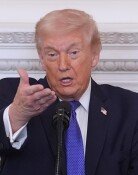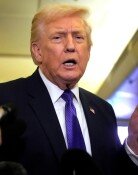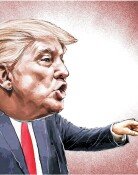Gov’t must publicize basic data of potential oil reserves
Gov’t must publicize basic data of potential oil reserves
Posted June. 12, 2024 08:23,
Updated June. 12, 2024 08:23
The series of news stories that dominated the first week of June demonstrated that even 'science' can become entangled with politics once mentioned by President Yoon Suk Yeol. On June 3, President Yoon held his first state affairs briefing since his inauguration, announcing potential oil and gas reserves in the deep sea near Yeongil Bay, Pohang, North Gyeongsang Province. The president reportedly wanted to personally share this news with the public upon receiving the report. He might have believed that revealing such a significant scientific possibility could have a lasting impact, but he did not consider the political repercussions. However, once the president unveiled this scientific possibility to the public by surprise, it could no longer remain within the safe realm of scientific exploration and fact-based science.
Advisor Vitor Abreu from U.S. geoscience consulting provider Act Geo rebutted in a recent interview with The Dong-A Ilbo that the East Sea area had been drilled three times already, questioning whether public sentiment had been this intense during any of those times. Since 2012, the Korea National Oil Corporation (KNOC) has conducted three drilling sessions in the deep sea of Yeongil Bay. Abreu's analysis suggests reserves worth as much as 14 billion Korean won in oil and gas. However, most Korean citizens only learned about the drilling service provider this time around. The record low approval rating of the current administration since its inauguration and the belief within government circles that the issue should have been announced by a relevant public official at the director-general level partially explain why public sentiment has become so inflamed.
The government once again allowed room for excessive expectations over scientific facts. Trade, Industry, and Energy Minister Ahn Duk-geun noted that the 14 billion won worth of oil reserves are equivalent to five times the market capitalization of Samsung Electronics today. Oil exploration and development is grounded in science, followed by economics. This is why experts are meticulous, carefully choosing words such as "reserves." In oil exploration and development, reserves refer to the quantity of oil whose existence and economic value are verified through drilling. In other words, reserves represent the amount of oil that can be commercially produced using proven technology without any uncertainty. Thus, the Minister essentially claimed that the reserves, unverified in both existence and economic terms, are worth around 220 billion won.
Irrational overzeal instead of rational judgment paved the way for speculation. The president announced his approval of the oil exploration and drilling plan around 10 a.m., a time when stock trading is highly active. Many in the stock market could hear people asking which stocks to buy, leading to a surge in stocks with "oil" in their names. For instance, Korea Petroleum, whose stock price soared to the daily limit that day, has little to do with oil drilling, as its main business is manufacturing and distributing asphalt. Typically, news or issues that can significantly affect the stock market are announced after the market closes for the day. It is still unclear why the government rushed the announcement just one hour after the stock exchange opened, especially when the actual exploration work for the first drilling will not take place until next month at the earliest.
The government and the ruling party have accused the opposition party of attempting to politicize the realm of science. However, the government politicized the issue in the first place. Additionally, the government and the KNOC refuse to provide information requested by the opposition party, citing "trade secrets." They have even declined to submit information on the method recommended by the advisory group that evaluated Act Geo's analysis results. Information previously partially public on the website for posting original documents managed by public organizations has now been classified as confidential. If the government genuinely intends to advance oil exploration and development in the deep sea of Yeongil Bay, which has already been politicized, it should transparently publicize the basic data, the starting point of scientific discussion.







